Okonomi Sushi Pop-Up at Mills Market in Orlando
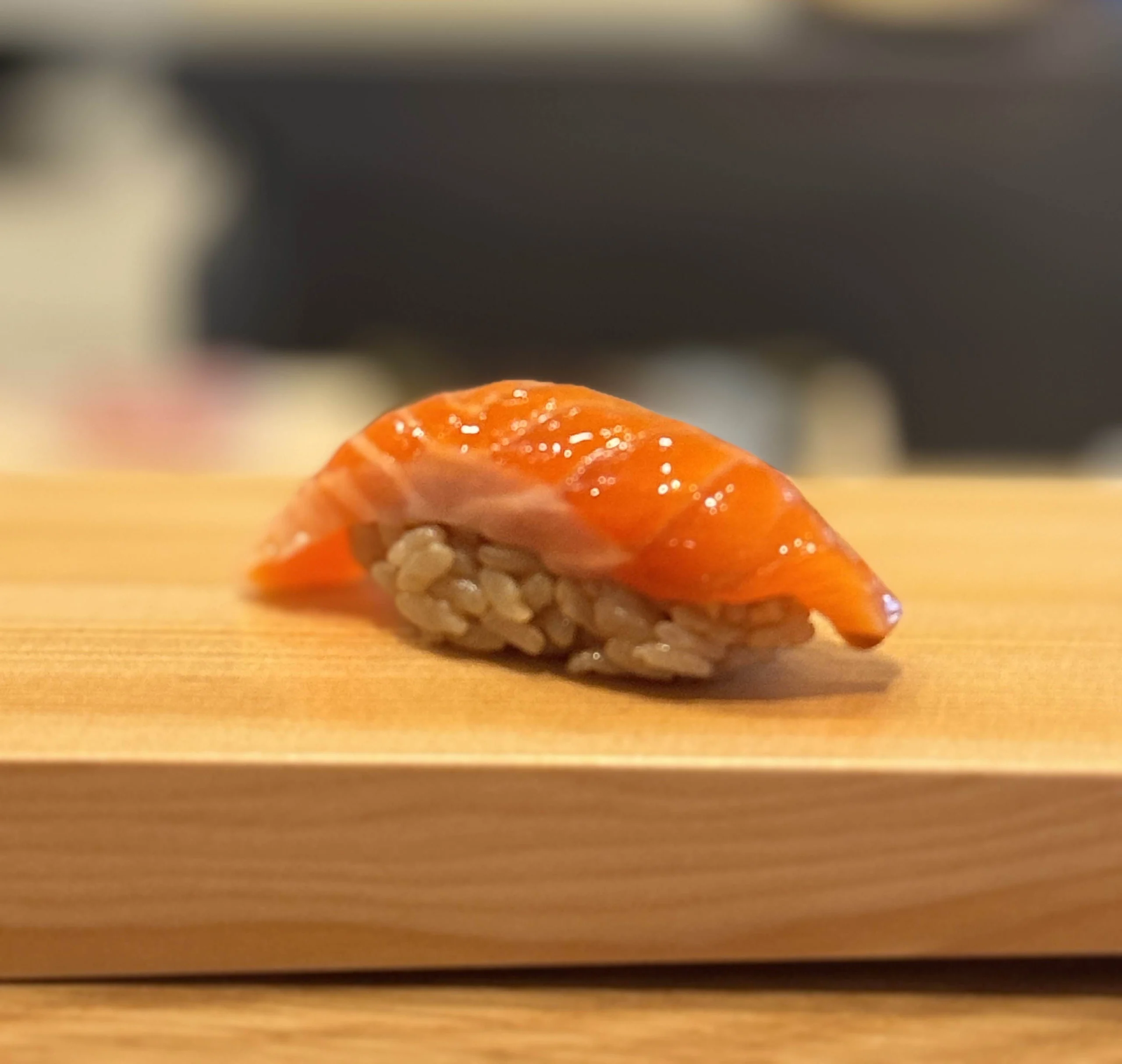
As a self-proclaimed glutton and sushi lover, I’ve eaten my way through countless sushi spots across Orlando. In recent years, I’ve noticed more chefs starting to recognize that there’s a real demand for traditional nigiri-focused sushi outside of omakase dining. That’s why I think Okonomi at Mills Market in Orlando is an exciting step forward. Mills Market has become the heart of Orlando’s Asian food scene, and my hope is that concepts like Okonomi continue to spread to other parts of the city.
First Impressions of Okonomi
My wife and I have eaten at nearly every upscale sushi restaurant in Orlando. And by upscale, I don’t just mean places that charge higher prices. What sets them apart is the obvious dedication of the chefs behind the counter. These are restaurants that take sushi seriously, focusing on serving high-quality nigiri instead of just piling on flashy rolls like California rolls or deep-fried creations.
Okonomi is a new sushi pop-up inside Mills Market in Orlando, led by chef William Shen and his team. Shen is one of the most recognized names in the city’s dining scene. He also runs Sorekara, a two-Michelin-starred restaurant in Baldwin Park, along with the Michelin Bib Gourmand spots Zaru (located right next to Mills Market) and Unigirl, a popular food stall inside the market. He even has another concept in the works called Cowboy Curry, which is also in its pop-up phase.

Like all of Chef William Shen’s projects, the Okonomi pop up at Mills Market has been popular from the very start. When my wife and I visited, it took us about an hour to get a spot, and the hostess mentioned that guests were already lining up 30 minutes before seating.
Okonomi operates as a sushi bar with a quick, casual Edomae style nigiri focused menu. The stall is tiny, barely a few feet wide, yet the team of four chefs still manages to prepare sushi efficiently. Much like the rest of Mills Market, this is not meant to be a full sit down dining experience. Instead, it feels more like a neighborhood sushi counter in Tokyo, where you swing by when the craving hits and order your fill of raw fish and rice.
The name “Okonomi” means “customer’s choice” in Japanese, a contrast to the “chef’s choice” concept of omakase. The casual setting reflects that idea, since there are no reservations, and I expect that policy will continue even when the restaurant opens permanently. That makes Okonomi stand out in Orlando, where most nigiri focused restaurants are either expensive or require advance booking. Having a casual, high quality sushi option that does not involve preplanning is a welcome addition. Sometimes you do not want a long menu of rolls and appetizers, you just want high-quality fish on seasoned rice.
What Makes Okonomi Different
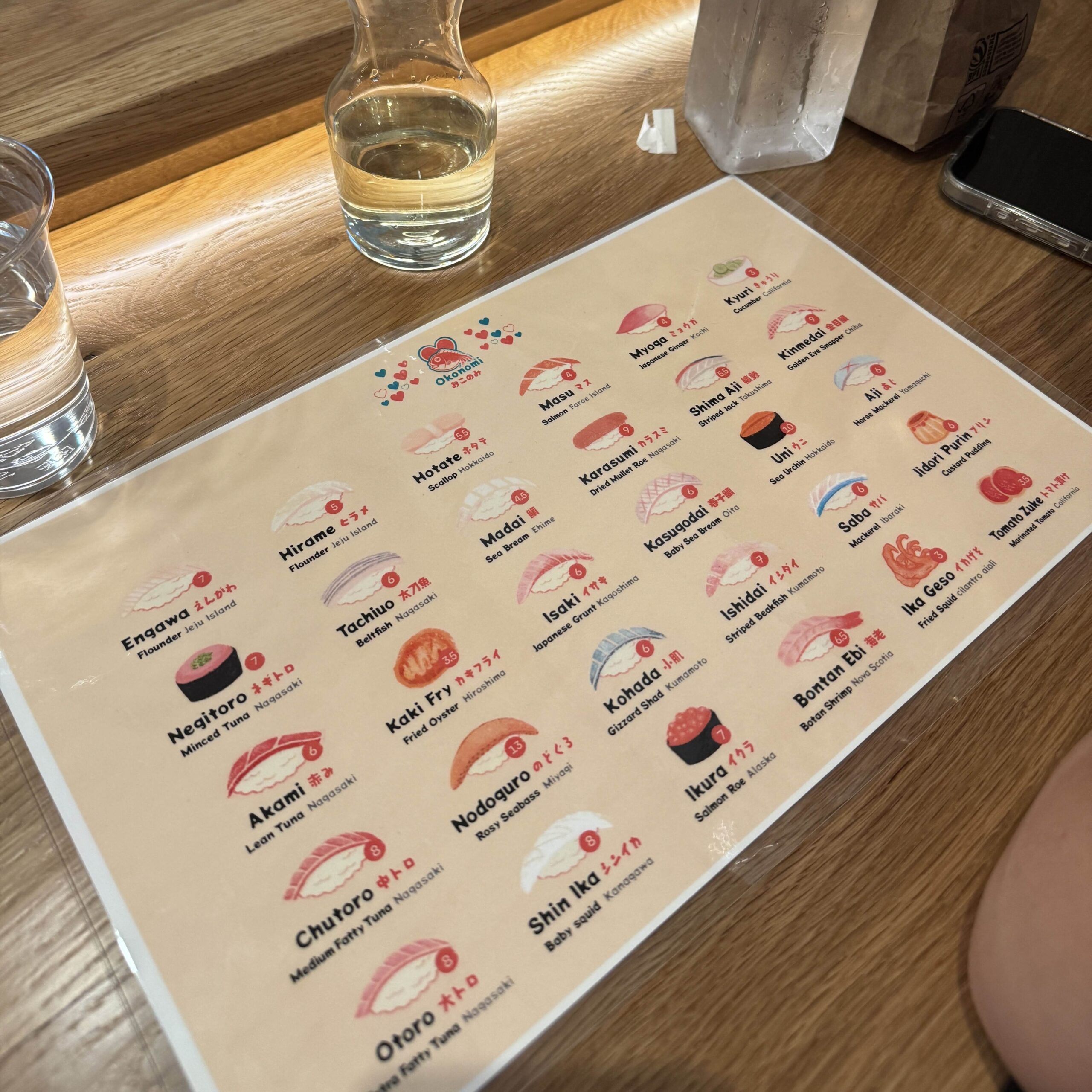
One of the biggest strengths of Okonomi is its attention to both sourcing and tradition. If I were a betting man, I’d say the fish is supplied by the same purveyors that source Chef Shen’s Michelin-starred Sorekara. Either way, the quality is high, and the menu includes unique options like beltfish, rosy seabass, and baby squid alongside staples like tuna and salmon (which the chef noted was actually a type of trout).
The sushi rice is another standout. Most Orlando sushi restaurants, even upscale ones, use standard rice vinegar. Okonomi, however, uses akazu, a vinegar made from sake lees and prized in traditional Edomae sushi. This darker vinegar gives the rice a light brown tint and a savory complexity you rarely find outside Tokyo’s top sushi counters. Since rice is the soul of sushi, not the fish, this choice shows Okonomi’s commitment to authenticity.
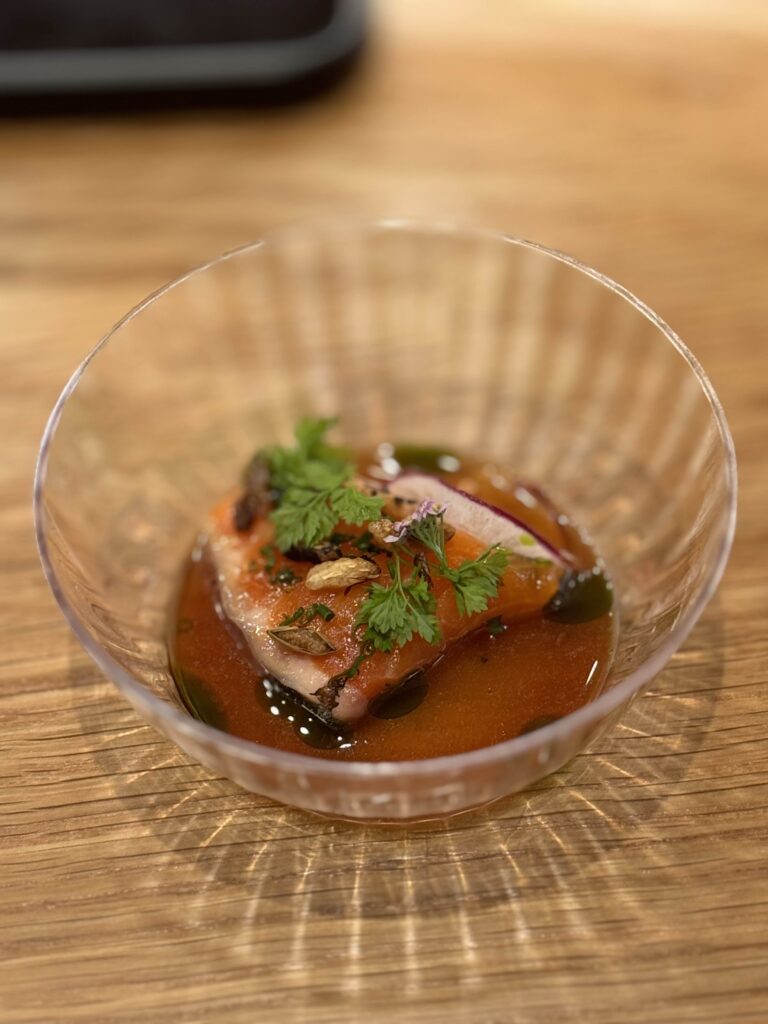
My Sushi Tasting at Okonomi
I was already snacking in Mills Market while waiting for my spot at the counter, so I wasn’t too hungry. I decided to order 8 pieces of sushi to get a good feel for the menu. A nice surprise came right away: a complimentary appetizer of trout in a ponzu-like sauce, which set the tone for the meal.
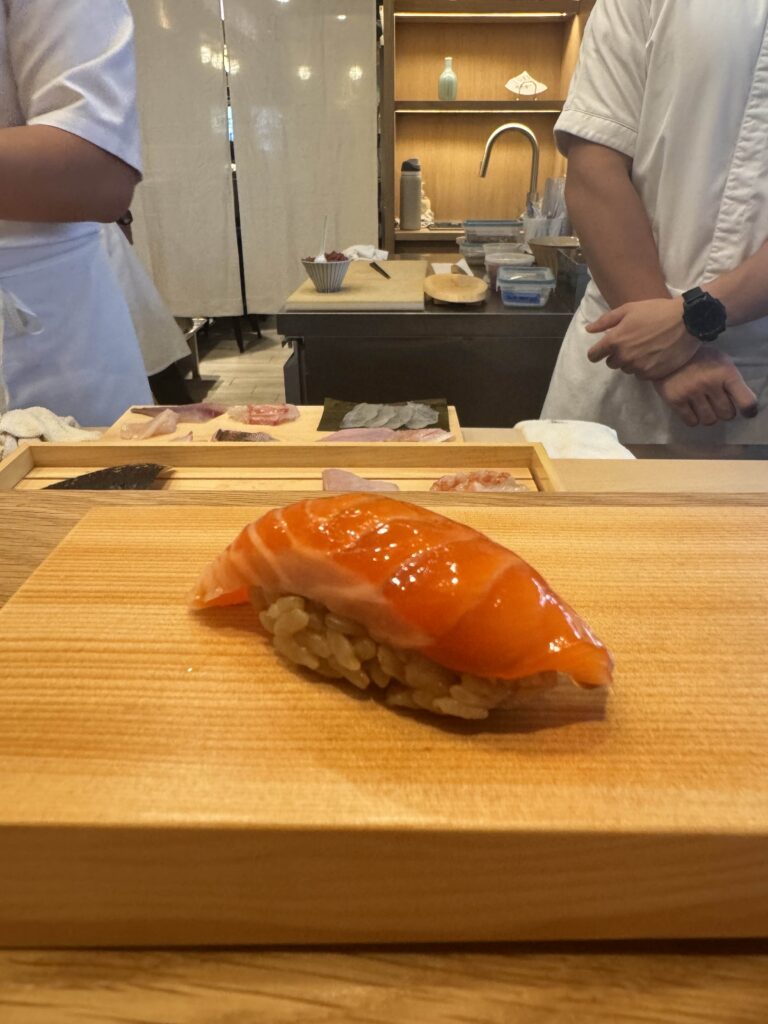
Masu (Trout)
I started with masu, a bright orange trout that had a mild flavor and wasn’t too fatty. It was a subtle but solid starter piece that eased me into the tasting.
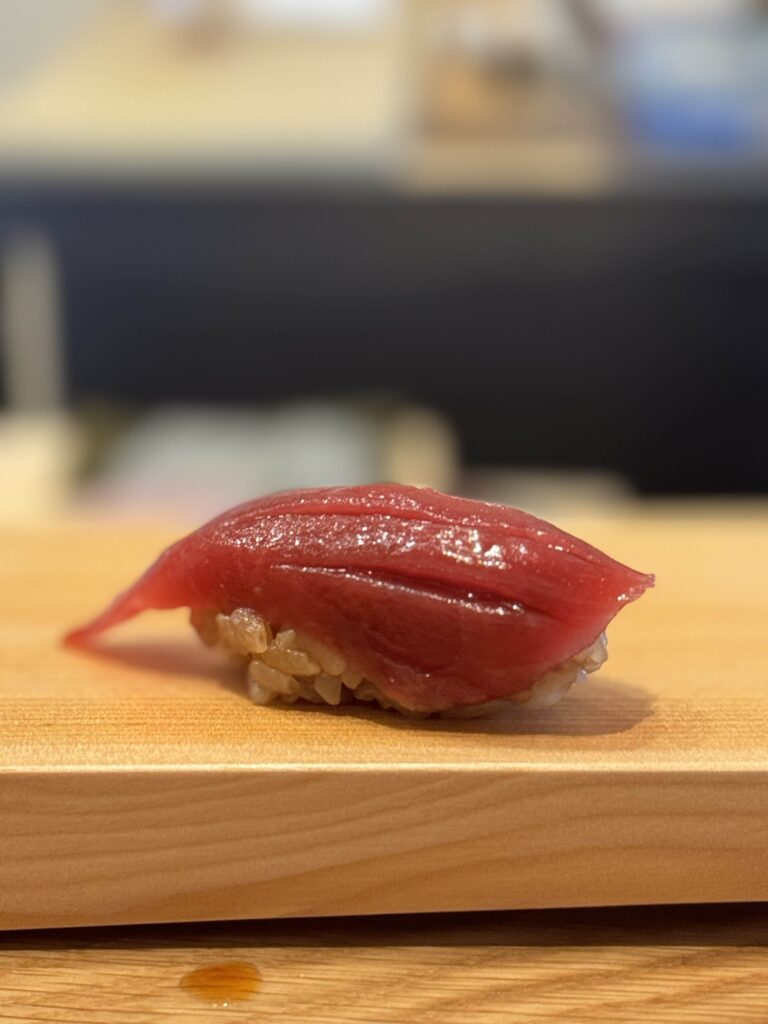
Akami (Lean Bluefin Tuna)
Next came akami, the lean cut of bluefin tuna that every traditional sushi bar features. It had a deep red color, was tender, and carried a clean yet strong fish flavor balanced by the vinegared rice. I enjoyed it, though my wife is less of a fan of the stronger bluefin taste.
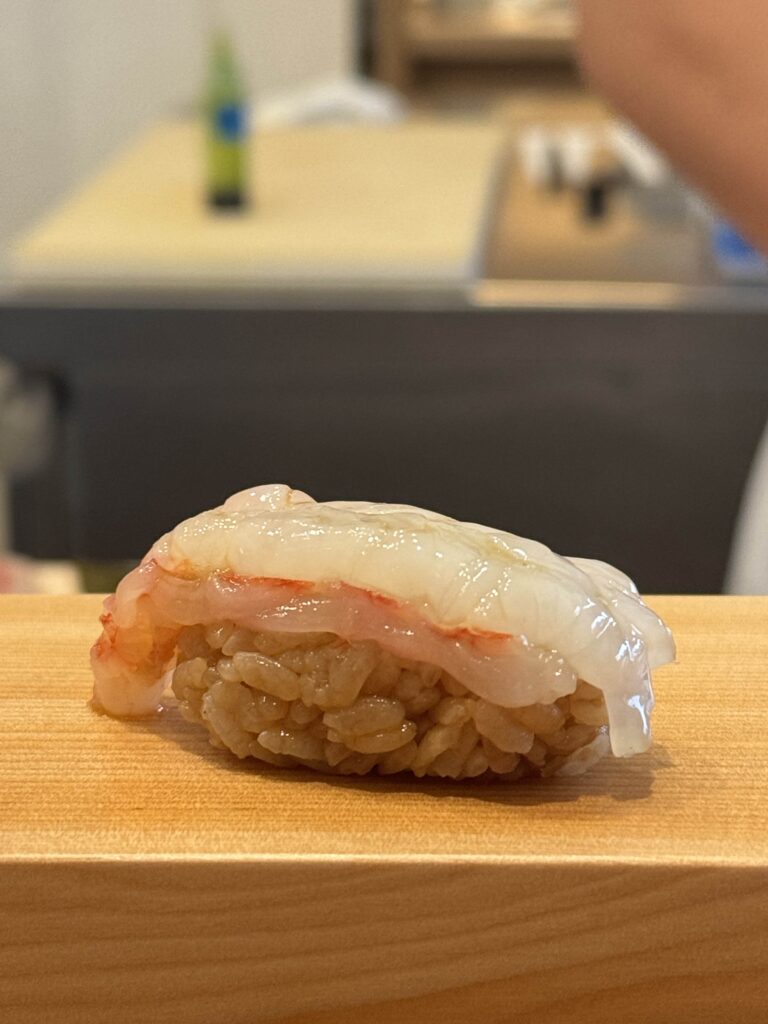
Botan Ebi (Spotted Prawn)
Spotted prawn is one of my personal favorites, and Okonomi’s version was creamy and sweet. The wasabi was a bit strong, though I prefer it slightly torched like at Edoboy, which makes it taste closer to perfectly cooked lobster.
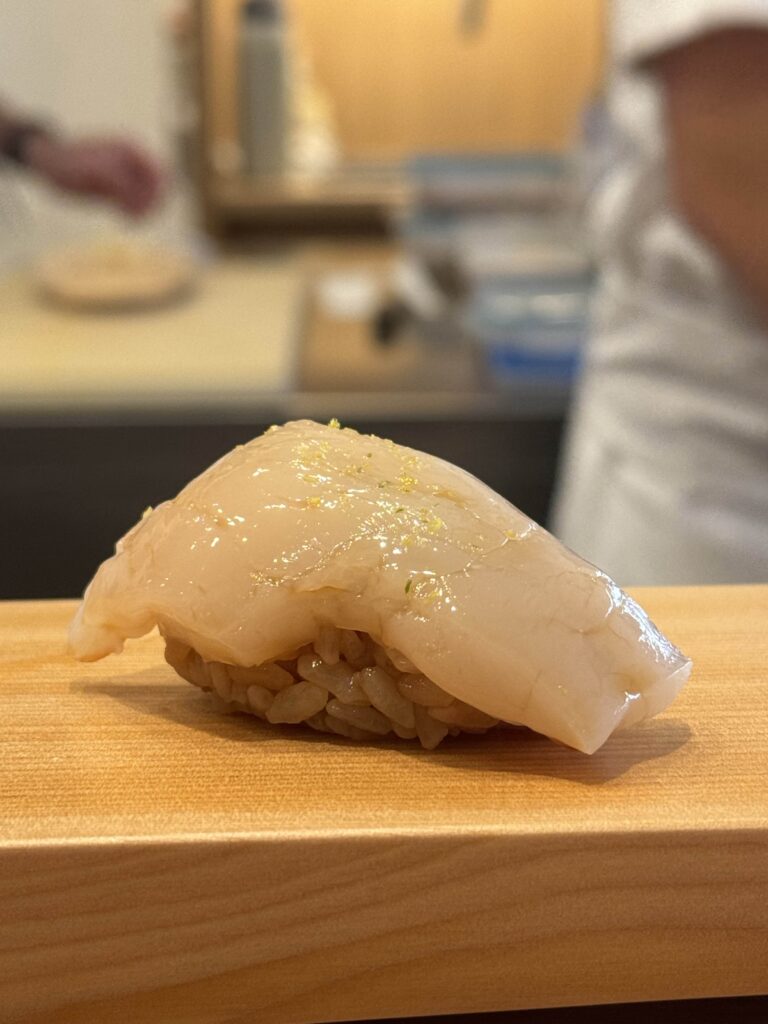
Hotate (Scallop)
The scallop was fresh, tender, and sweet with a briny touch. A sprinkle of shaved citrus peel added a bright, refreshing contrast that elevated the bite.
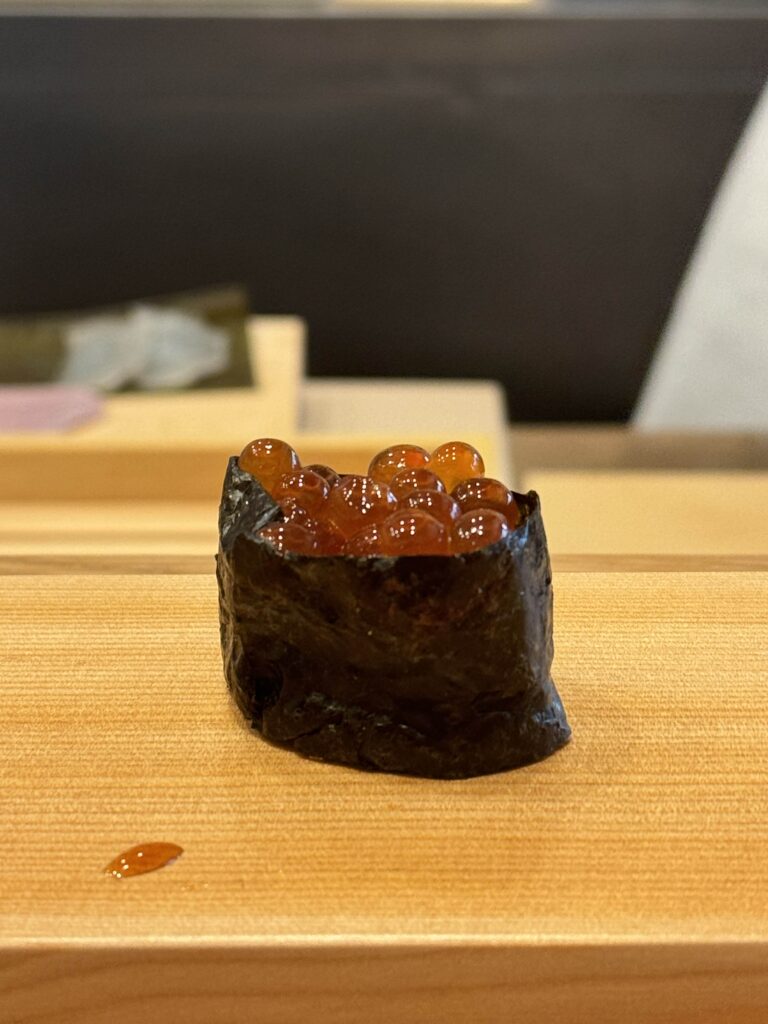
Ikura (Salmon Roe)
Ikura has always been nostalgic for me since it was the first raw sushi I ever tried. At Okonomi, the salmon roe was briny and flavorful, though a bit overpowering. The gunkan could have used more rice to balance the saltiness, and the seaweed wrapper was slightly soggy. Overall, it was one of the few lowlights of the night.

Otoro (Fatty Bluefin Tuna Belly)
Otoro is the crown jewel of sushi, often called the wagyu of the sea. The piece here melted in my mouth with a rich, oily flavor perfectly countered by the tang of the rice. I appreciated that Chef Shen used a modest cut, avoiding the heavy, buttery overload that sometimes happens with otoro.
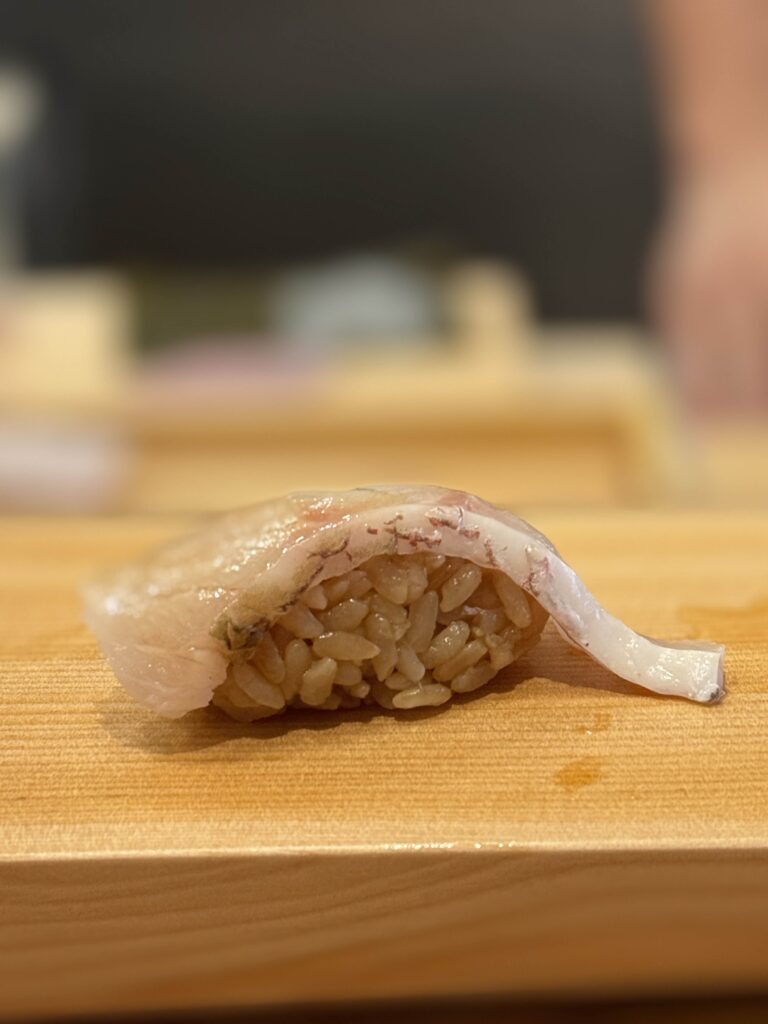
Nodoguro (Rosy Seabass)
The last piece I tried was nodoguro, also known as rosy seabass, a rare and seasonal fish I haven’t come across at other Orlando sushi restaurants. It was the most expensive item on the menu, but worth it for a one-time experience. The flavor reminded me of chutoro, offering a fatty richness with less intensity than bluefin tuna. Soft and slippery, it provided a refined and memorable finish to the meal.
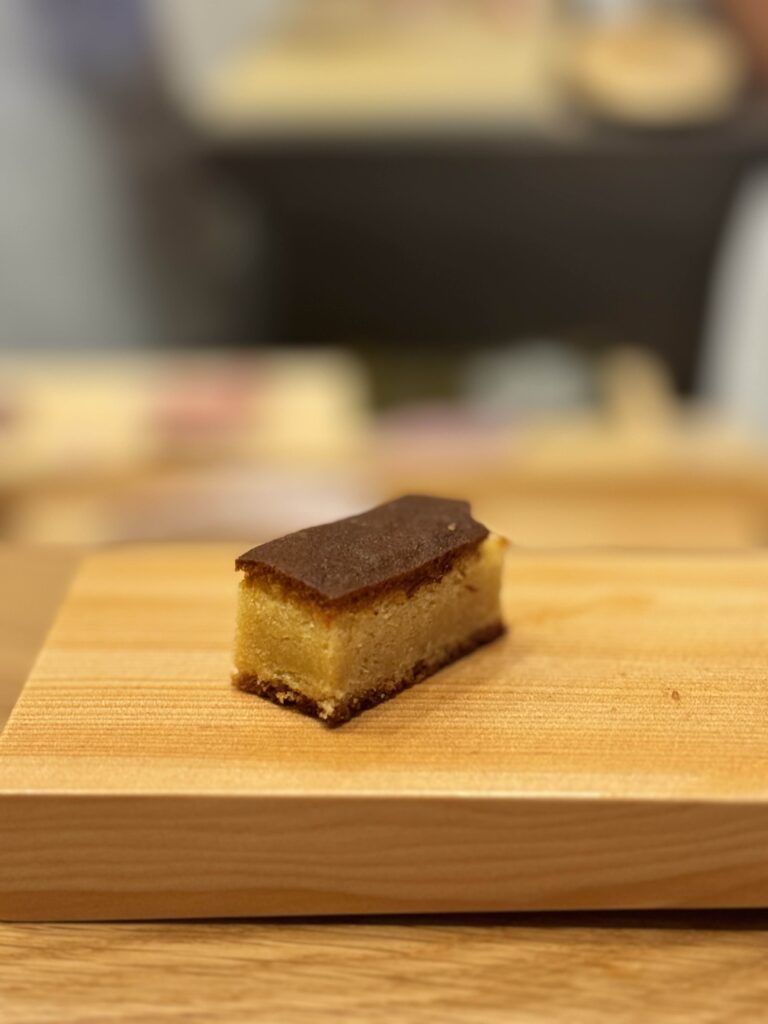
Complimentary Dessert
Once we asked for the check, the staff brought out a complimentary dessert that resembled Japanese castella cake. It was offered as a substitute for the traditional tamagoyaki, the dashi-based Japanese omelette often served at high-end omakase restaurants in Japan but rarely seen in Orlando. I appreciated the gesture, but the cake itself was more of a typical Asian-style sponge cake rather than a highlight of the meal.
Overall Experience
Okonomi is a strong new addition to the Orlando sushi scene. If I lived closer, I could easily see myself stopping in for casual date-night sushi cravings. Once the pop-up transitions into a full-time stall and the early hype settles, I look forward to dropping by, ordering a few favorite pieces, and watching the chefs craft nigiri right in front of me.
This sushi bar has real potential to join my list of the best sushi in Orlando after a few more visits to confirm consistency. With Chef William Shen expanding concepts across Mills Market, it almost feels like he lives there, a sign of his dedication to championing Orlando’s evolving sushi and food culture.

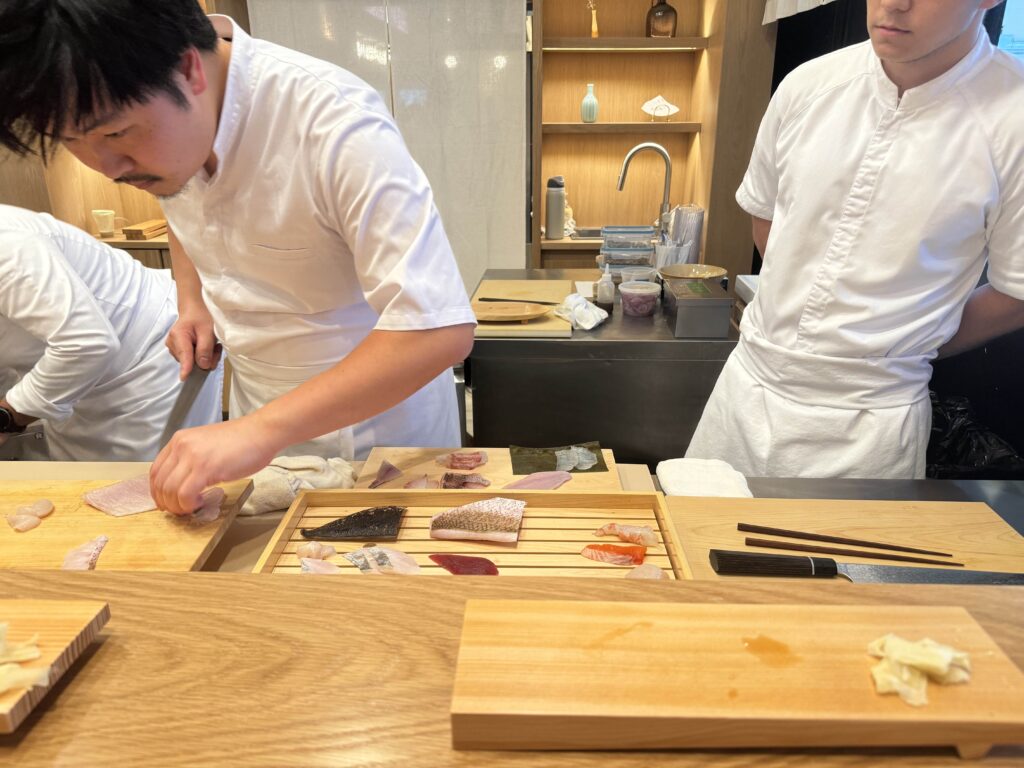
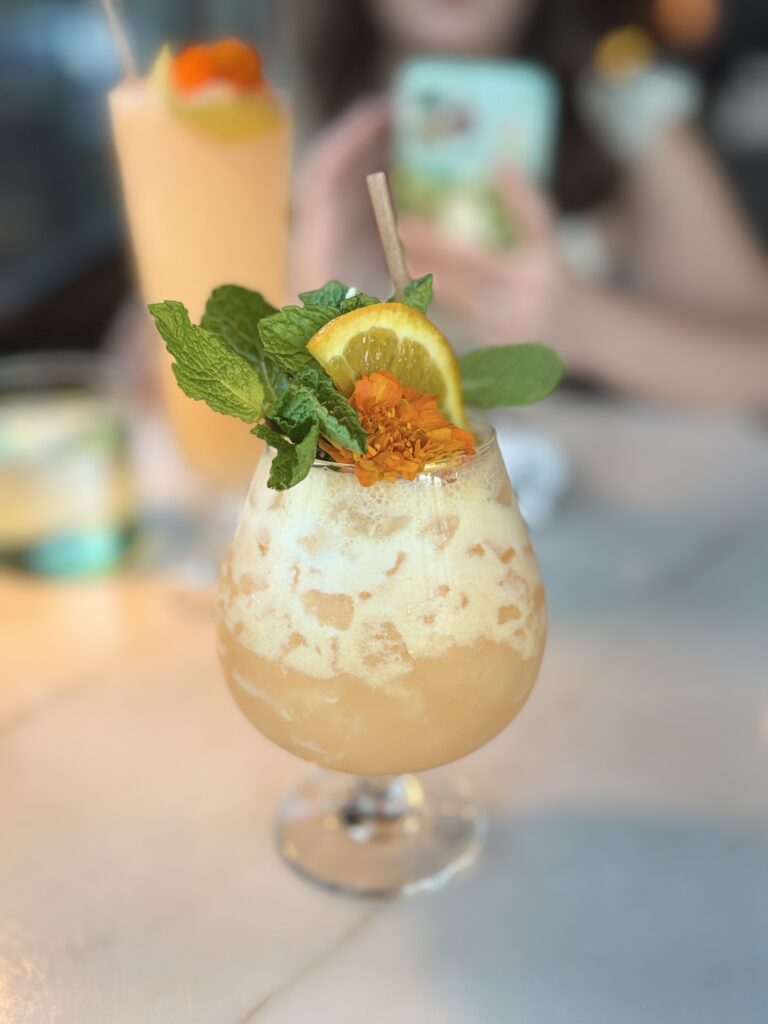

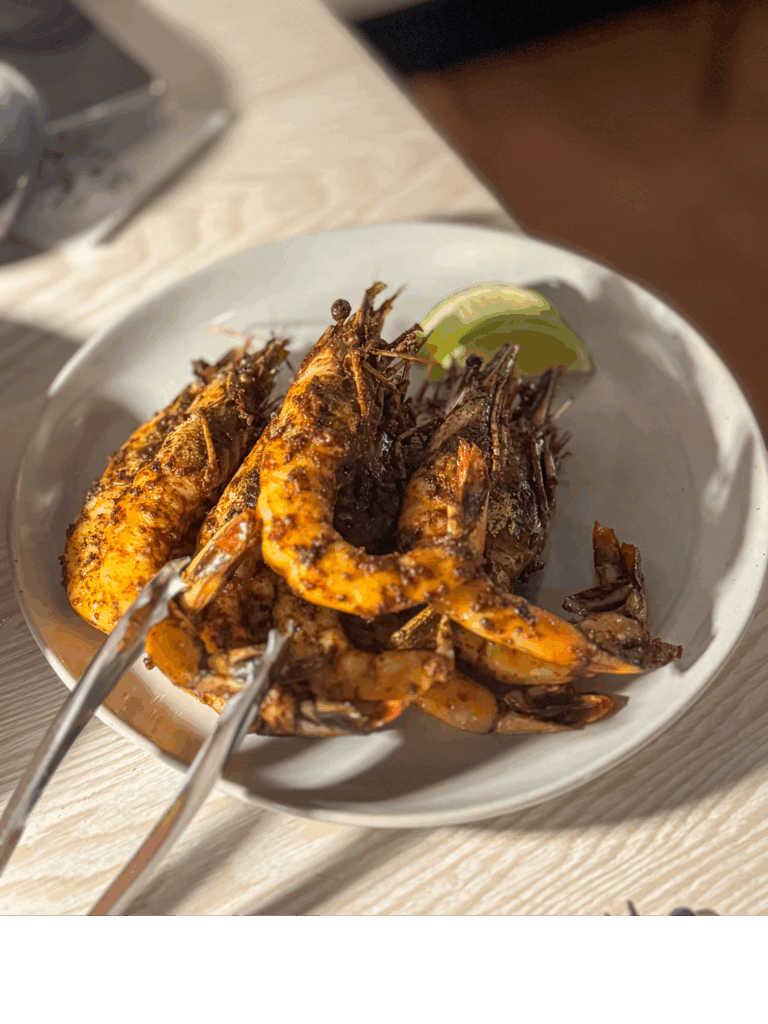
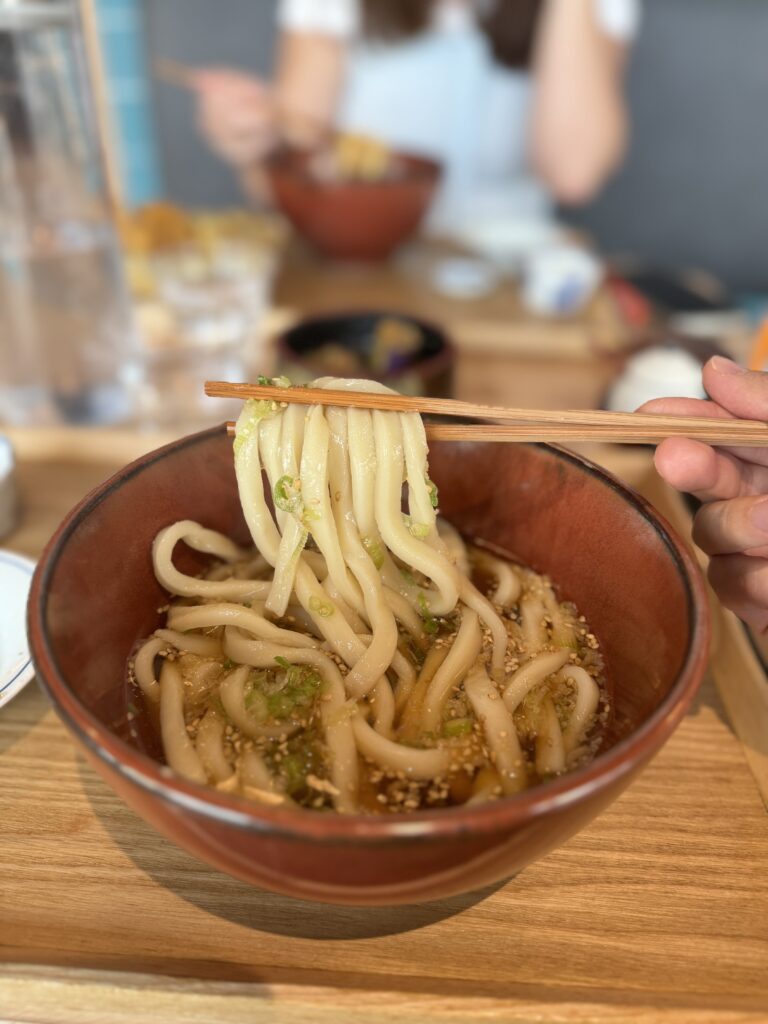
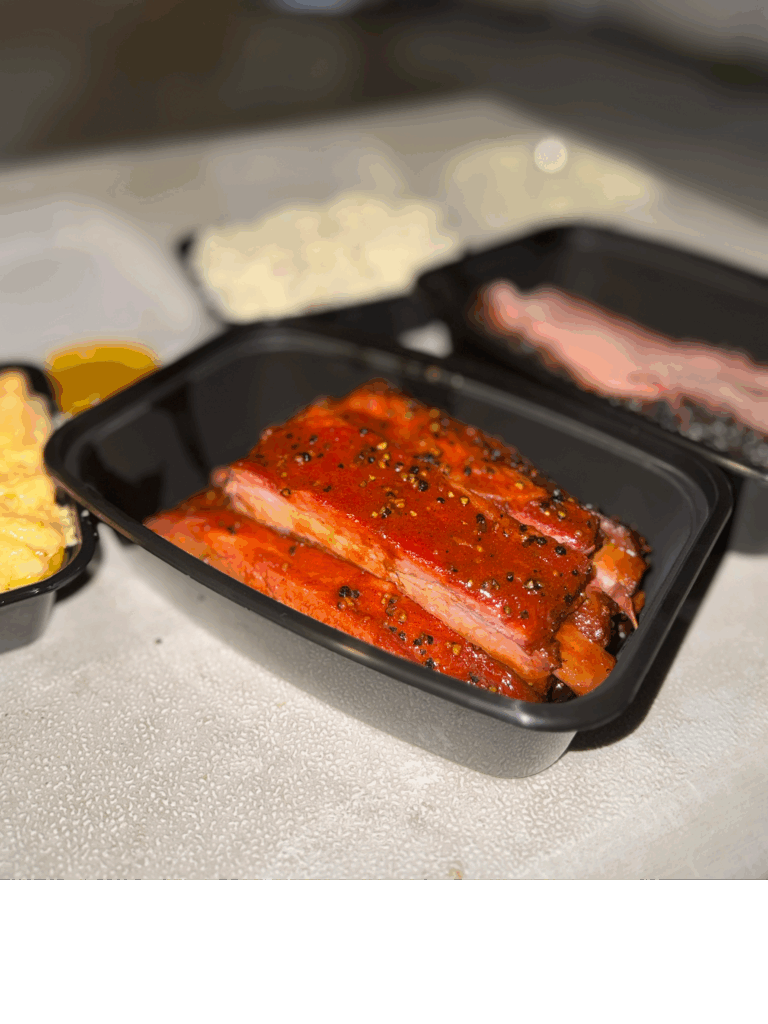
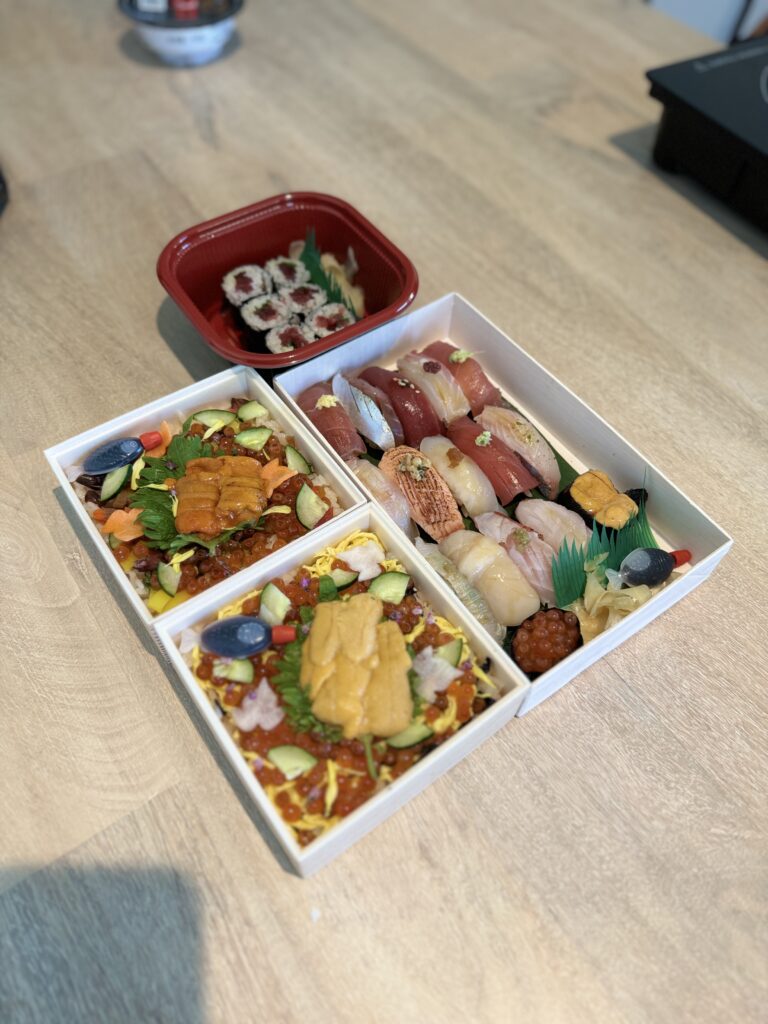
One Comment